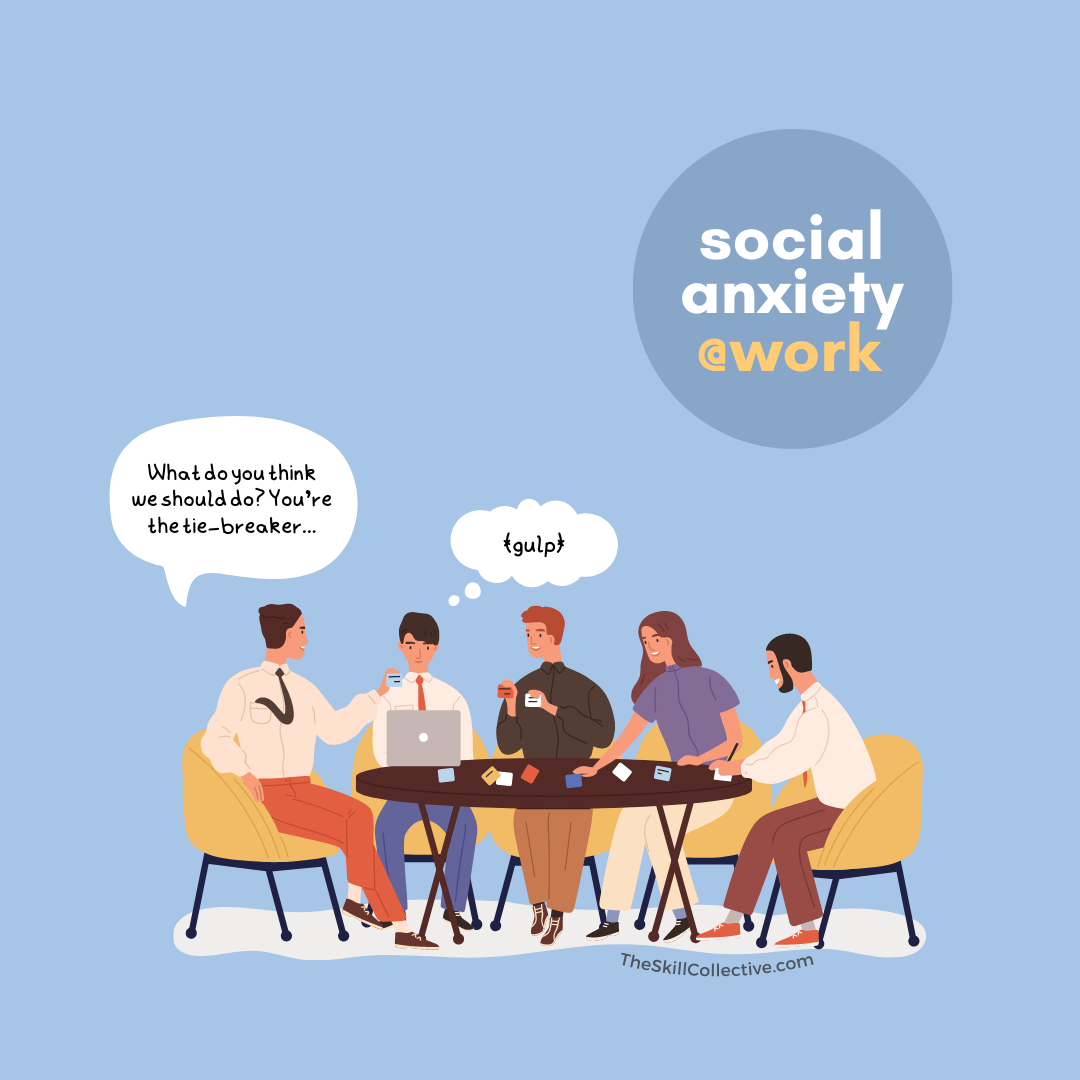WHAT IS ANXIETY?
We’ve all experienced what anxiety feels like in different stressful or high pressure situations. Important events such as tests, exams, or job interviews can trigger anxiety, as can conflict or major life changes. Anxiety, to some degree, helps us stay focused and motivated, and to take action in challenging times.
You see, we NEED to be able to feel anxious. That may sound counterintuitive, as many of us try to avoid feeling anxious altogether. However, anxiety alerts us to situations where there is some sort of threat so that we can take action to stay safe. Part of this involves the Fight or Flight Response which is a series of physical, behavioural, and cognitive changes designed to get us ready for action to help us survive. Think of it as an alarm that alerts us to take action.
WHEN IS ANXIETY A PROBLEM?
Whilst anxiety is helpful, there are times when our experience of anxiety becomes problematic. Think of it as a misfiring alarm, leading us to perceive events as being more threatening than they are. Anxiety becomes problematic when (1) it is excessive, and (2) it affects our ability to function at work, play, or just in everyday life. Some examples of misfiring alarms include:
Feeling panicked when you have to do some form of public speaking, to the point where you opt out of going for a promotion because public speaking may be part of the role.
Worrying that something bad will happen if you were to fly, with the fear of flying so extreme to the point where you can’t bring yourself to hop on a plane to see your loved ones interstate or overseas due to the overwhelming anxiety that you experience.
Feeling lonely and isolated since no one knows the real you because social anxiety has led you to avoid talking about yourself and avoid interacting with others thus robbing you of the chance to make meaningful connections.
As you can see, anxiety may be triggered in a wide range of situations. Below we discuss some types of anxiety and anxiety disorders.
types of anxiety and anxiety disorders
Anxiety disorders are the most common form of mental health disorders in Australia [1]. At The Skill Collective we have a passion for working with the following types of anxiety and anxiety disorders:
Panic attacks and Panic disorder Panic attacks are sudden, episodes of intense anxiety accompanied by a range of physical symptoms. Learn more…
Social anxiety is marked by a fear of negative evaluation, which can lead to feeling panicky and avoidance of social situations. Learn more…
Public speaking anxiety is a specific form of social anxiety, and affects many. A lot can be done to help Public Speaking Anxiety, so read on to learn more…
Performance anxiety (a type of Social Anxiety Disorder) can strike during competitive sport, playing music, singing, acting, and also in public speaking. Learn more…
Exam anxiety is common amongst students, but at its extreme it can result in panic attacks and ‘fogginess’ of the mind. Preparing well for exams and calming the anxiety response are critical, so read on to learn more…
Specific phobias - we help those with intense fears about vomiting, spiders, flying, heights, small spaces, blood/ injections, and more. Read on to learn more…
Health anxiety involves excessive worrying about having a serious illness and is often accompanied by frequent checking of symptoms, asking Dr Google, or repeated medical tests for the same issues. Learn more…
Generalised anxiety disorder, or excessive and chronic worrying, can lead you to feel under siege from whatever dangers may lie on the horizon. These can lead to feeling restless or fatigued. Learn more…
Relationship anxiety is marked by worries about rejection from a partner, seeking reassurance, and showing the parts of you to fit what you think your partner wants. It can be highly distressing, and cause relationship strain.
Trauma, Ptsd, and OCD
Trauma/PTSD and OCD have previously been classified under Anxiety Disorders. In more recent times they have moved into their own separate categories as a result of ongoing research into the unique characteristics of these conditions, however we have included them in this section due to the significant anxiety and distress experienced in these conditions.
Significant changes happen in your life after a traumatic event - not only do you experience distress at reminders of the event, your core beliefs about safety are changed and what feels safe to you may rapidly shrink, making your world smaller. Our psychologists can help you to process your trauma and find a way forward again in life. Ask for Tara or Tim.
Ever-present intrusive thoughts and compulsions makes OCD extremely challenging for daily life. Activities such as eating, shopping, or even walking can all be extremely difficult for those who live with OCD. In turn, this can affect relationships, the body and self-esteem, and quality of life. Ask for Keely, Joyce, or Emily.
treatments for anxiety, trauma, + OCD
Anxiety disorders have been demonstrated to respond well to a range of different treatments. Some of these approaches include:
COGNITIVE BEHAVIOURAL THERAPY (CBT) incorporating exposure therapy
CBT is the most well-researched treatment for anxiety, and there is an overwhelming amount of research demonstrating its effectiveness in treating most anxiety disorders [2]. CBT focuses on shifting your thoughts to be less anxiety-provoking – think of it as helping you to dial down the intensity of your anxiety. CBT also focuses on helping increase your body to feel more relaxed. This often involves some (very) gradual exposure to anxiety-provoking situations, in bite-sized manageable chunks, to help you cope with these experiences and regain what you have stopped doing in life due to your anxiety. In OCD treatment, the exposure component is paired with response prevention of compulsions (Exposure and Response Prevention; ERP).
Eye movement desensitisation and reprocessing (Emdr)
EMDR is one of the treatments of choice (together with CBT with prolonged exposure) for trauma and PTSD. In it, individuals hold the traumatic image/memory whilst engaging in bilateral stimulation (eye movements), to reduce distress associated with these memories.
MINDFULNESS-BASED COGNITIVE THERAPY and ACCEPTANCE AND COMMITMENT THERAPY (ACT)
Mindfulness-Based Cognitive Therapy and Acceptance Commitment Therapy are examples of ‘new wave’ therapies, based on the principles of CBT. While CBT typically involves directly challenging thinking styles, these approaches instead encourage the individual to change their relationship to thoughts. This means that distressing thoughts and worry have less power over the person. MBCT and ACT have both been demonstrated to be effective in treating anxiety disorders [3], and is often an excellent approach to helping with repetitive worries such as those found in Health Anxiety, Generalised Anxiety Disorder, and Obsessive Compulsive Disorder.
PSYCHOPHARMACOLOGY
At times, anxiety disorders can seriously interfere with daily living. In these cases, medication can be used to control some of the physical symptoms of anxiety, which can make engaging in ‘talking therapy’, or facing exposure therapy, a lot easier to manage. It is always important to talk to your GP about your medication options.
If you think anxiety, trauma, or OCD may be impacting you, why not Contact Us for a tailored approach? Our psychologists love working with anxiety and anxiety disorders, and our goal is to help you build the skills to overcome your fears. Click on each of the above types of anxiety to see which psychologists have a special interest in that area.
FROM OUR BLOG: ARTICLES ON ANXIETY
REFERENCES
[1] Slade, T., Johnston, A., Teesson, M., Whiteford, H., Burgess, P., Pirkis, J., & Saw, S. (2007). The mental health of Australians 2. Report on the, 2008 National Survey of Mental Health and Wellbeing.
[2] Hofmann, S. G., Asnaani, A., Vonk, I. J., Sawyer, A. T., & Fang, A. (2012). The efficacy of cognitive behavioral therapy: A review of meta-analyses. Cognitive therapy and research, 36(5), 427-440.
[3] Vøllestad, J., Nielsen, M. B., & Nielsen, G. H. (2012). Mindfulness‐and acceptance‐based interventions for anxiety disorders: A systematic review and meta‐analysis. British journal of clinical psychology, 51(3), 239-260.






















Living with social anxiety as a student can be challenging - speaking up in class, group assignments, public speaking, gaining work experience, making friends … the list of social situations is endless. But there’s no need to suffer further…read on to find how to go from surviving to thriving in your studies.